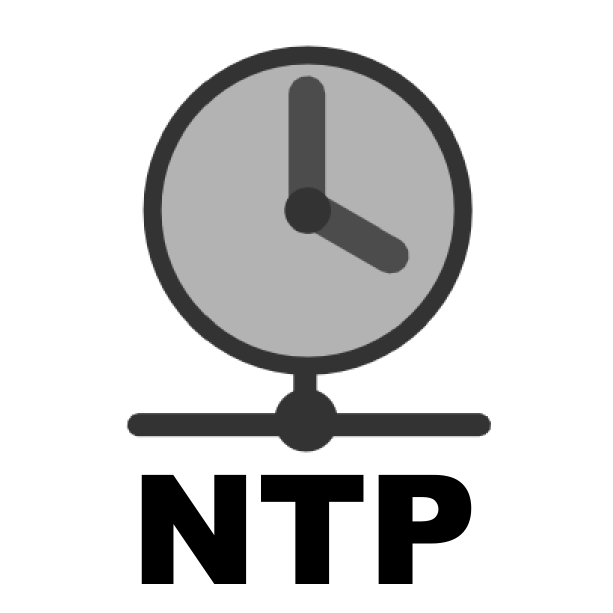
NTPd
NTPd
Plugin: go.d.plugin Module: ntpd
Overview
This collector monitors the system variables of the local ntpd daemon (optional incl. variables of the polled peers) using the NTP Control Message Protocol via UDP socket, similar to ntpq, the standard NTP query program.
This collector is supported on all platforms.
This collector supports collecting metrics from multiple instances of this integration, including remote instances.
Default Behavior
Auto-Detection
This integration doesn’t support auto-detection.
Limits
The default configuration for this integration does not impose any limits on data collection.
Performance Impact
The default configuration for this integration is not expected to impose a significant performance impact on the system.
Setup
Prerequisites
No action required.
Configuration
File
The configuration file name for this integration is go.d/ntpd.conf.
You can edit the configuration file using the edit-config script from the
Netdata config directory.
cd /etc/netdata 2>/dev/null || cd /opt/netdata/etc/netdata
sudo ./edit-config go.d/ntpd.conf
Options
The following options can be defined globally: update_every, autodetection_retry.
| Name | Description | Default | Required |
|---|---|---|---|
| update_every | Data collection frequency. | 1 | no |
| autodetection_retry | Recheck interval in seconds. Zero means no recheck will be scheduled. | 0 | no |
| address | Server address in IP:PORT format. | 127.0.0.1:123 | yes |
| timeout | Connection/read/write timeout. | 1 | no |
| collect_peers | Determines whether peer metrics will be collected. | no | no |
Examples
Basic
A basic example configuration.
jobs:
- name: local
address: 127.0.0.1:123
With peers metrics
Collect peers metrics.
jobs:
- name: local
address: 127.0.0.1:123
collect_peers: yes
Multi-instance
Note: When you define multiple jobs, their names must be unique.
Collecting metrics from local and remote instances.
jobs:
- name: local
address: 127.0.0.1:123
- name: remote
address: 203.0.113.0:123
Metrics
Metrics grouped by scope.
The scope defines the instance that the metric belongs to. An instance is uniquely identified by a set of labels.
Per NTPd instance
These metrics refer to the entire monitored application.
This scope has no labels.
Metrics:
| Metric | Dimensions | Unit |
|---|---|---|
| ntpd.sys_offset | offset | milliseconds |
| ntpd.sys_jitter | system, clock | milliseconds |
| ntpd.sys_frequency | frequency | ppm |
| ntpd.sys_wander | clock | ppm |
| ntpd.sys_rootdelay | delay | milliseconds |
| ntpd.sys_rootdisp | dispersion | milliseconds |
| ntpd.sys_stratum | stratum | stratum |
| ntpd.sys_tc | current, minimum | log2 |
| ntpd.sys_precision | precision | log2 |
Per peer
These metrics refer to the NTPd peer.
Labels:
| Label | Description |
|---|---|
| peer_address | peer’s source IP address |
Metrics:
| Metric | Dimensions | Unit |
|---|---|---|
| ntpd.peer_offset | offset | milliseconds |
| ntpd.peer_delay | delay | milliseconds |
| ntpd.peer_dispersion | dispersion | milliseconds |
| ntpd.peer_jitter | jitter | milliseconds |
| ntpd.peer_xleave | xleave | milliseconds |
| ntpd.peer_rootdelay | rootdelay | milliseconds |
| ntpd.peer_rootdisp | dispersion | milliseconds |
| ntpd.peer_stratum | stratum | stratum |
| ntpd.peer_hmode | hmode | hmode |
| ntpd.peer_pmode | pmode | pmode |
| ntpd.peer_hpoll | hpoll | log2 |
| ntpd.peer_ppoll | ppoll | log2 |
| ntpd.peer_precision | precision | log2 |
Alerts
There are no alerts configured by default for this integration.
Troubleshooting
Debug Mode
Important: Debug mode is not supported for data collection jobs created via the UI using the Dyncfg feature.
To troubleshoot issues with the ntpd collector, run the go.d.plugin with the debug option enabled. The output
should give you clues as to why the collector isn’t working.
-
Navigate to the
plugins.ddirectory, usually at/usr/libexec/netdata/plugins.d/. If that’s not the case on your system, opennetdata.confand look for thepluginssetting under[directories].cd /usr/libexec/netdata/plugins.d/ -
Switch to the
netdatauser.sudo -u netdata -s -
Run the
go.d.pluginto debug the collector:./go.d.plugin -d -m ntpd
Getting Logs
If you’re encountering problems with the ntpd collector, follow these steps to retrieve logs and identify potential issues:
- Run the command specific to your system (systemd, non-systemd, or Docker container).
- Examine the output for any warnings or error messages that might indicate issues. These messages should provide clues about the root cause of the problem.
System with systemd
Use the following command to view logs generated since the last Netdata service restart:
journalctl _SYSTEMD_INVOCATION_ID="$(systemctl show --value --property=InvocationID netdata)" --namespace=netdata --grep ntpd
System without systemd
Locate the collector log file, typically at /var/log/netdata/collector.log, and use grep to filter for collector’s name:
grep ntpd /var/log/netdata/collector.log
Note: This method shows logs from all restarts. Focus on the latest entries for troubleshooting current issues.
Docker Container
If your Netdata runs in a Docker container named “netdata” (replace if different), use this command:
docker logs netdata 2>&1 | grep ntpd